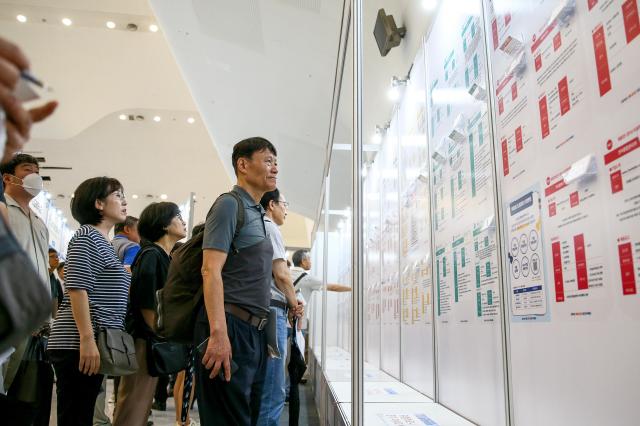
“It’s far from easy,” said Kim, who lives in Anyang, south of Seoul. “As a night-shift taxi driver, I often pick up intoxicated passengers, and minor altercations are commonplace. This job takes a significant physical toll.”
Kim is among a growing number of Koreans who spent decades in well-paid, skilled jobs but now face a precarious retirement. As the nation grapples with rapid demographic changes, the dream of a leisurely retirement is clashing with harsh realities for many middle-aged and senior workers.
The nation’s life expectancy rose from 76 years in 2000 to 82.7 years in 2022. The growth, which outpaced that of many other Organization for Economic Cooperation and Development (OECD) countries, reflects rapid advancements in healthcare and quality of life. However, this increased longevity comes with a significant economic burden.
Government statistics show that in 2022, 38.1 percent of Korea's elderly population aged 65 and above lived in relative poverty, defined as having an income below 50 percent of the median household income. While the rate has been declining since 2011, it remains the highest among the OECD members.
The percentage of working people in this age group was 36.2 percent in 2022, up 1.3 percentage points from 2021, when the rate was also the highest among the developed countries, according to Statistics Korea.
The nature of their employment also raises concerns. Half of the employed seniors are engaged in “simple labor” jobs, with the percentage increasing from 40.1 percent in 2017 to 48.7 percent in 2020. Such jobs often come with long working hours and physical demands that many retirees didn’t experience in their previous careers.
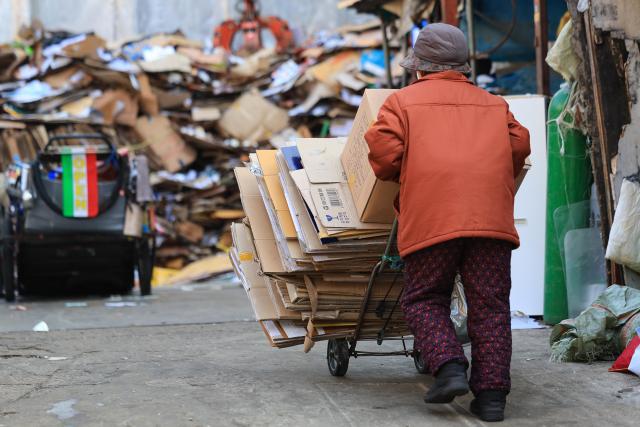
Jeong, 64, who lives in Goyang, west of Seoul, exemplifies the stark reality of post-retirement life. The former construction company manager, who oversaw building projects for nearly 30 years, transitioned to taxi driving a few years ago.
He finds his new role less stressful than his previous ones. “Back then, I had office hours, which meant working from 7 a.m. to 9 p.m., whereas now, I can move my shifts around freely,” he said. “But physically, it’s more demanding because now the road is my workplace.” He needs to be extra careful in the nation’s extreme summer and winter weather, as his eyesight changes with the weather due to aging.
Jeong advises his peers to consider stable, long-term career options that don’t risk retirement savings. “Find a second career. Look for something that provides a modest salary without requiring significant investment,” Jeong said.
Another retiree, also surnamed Kim, shares a more positive perspective. He worked at a gallery specializing in art interior design for 15 years before transitioning to landscaping at the age of 61. “I dedicated myself to learning something new, believing that when one door closes, another opens,” he said.
Kim is currently involved in gardening work at the National Assembly complex in Seoul. His newfound passion for horticulture has brought unexpected fulfillment. “When I finish trimming unruly flowers and grass, wiping sweat from my forehead, I feel a sense of pride that overshadows any difficulties faced during the work,” he said.
Recent data shows that many older Koreans find value and purpose in post-retirement work. The survey released by Statistics Korea indicates that about 70 percent of the population aged 55 to 79 wish to continue working. Among them, 35.8 percent cited finding enjoyment in work as their primary reason, while 55 percent pointed to the need to supplement living expenses.
By industry, the health and social welfare sector has overtaken agriculture, forestry and fishing as the largest employer of workers in this age group.
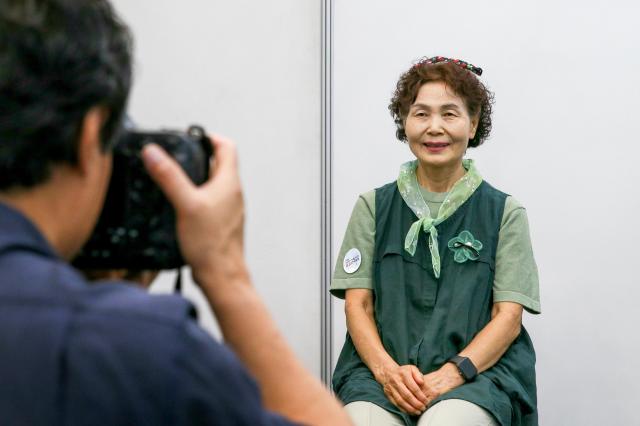
The event featured over 70 companies, predominantly from the service and care sectors. On-site interviews at the job fair resulted in 85 immediate hires and 510 scheduled second interviews, the organizers said.
"While we primarily hire app developers and sales-marketing professionals, many of today's applicants were in their mid-to-late 50s, born between 1964 and 1966. Many are willing to lower salaries just to secure a position with us,” a career counseling industry insider said at the event at Dongdaemun Design Plaza in Seoul.
Societal perceptions and stereotypes about certain jobs add to their difficulties. “There’s still a fixed mindset in society about certain jobs. I found it interesting that most 50 to 70-year-old passengers treat me poorly based on my social title as a taxi driver. On the contrary, younger people treat me with much more respect," taxi driver Kim said.
The challenge now lies in bridging the gap between retirement dreams and the current reality of the job market for Korea's aging workforce, while also addressing the strong desire of many older Koreans to remain active in the workforce well into their 70s.
Labor unions in major industrial sectors are calling for a gradual increase in the retirement age from the current 60 to 65. The National Assembly is also mulling proposals to reform the creaking national pension system, which is widely considered inadequate for providing sustainable income security for retirees.
To allow for more efficient utilization of senior workers' skills and experience, experts call for shifting from the current seniority-based wage system to one that focuses on job content and performance.
“Korea's seniority-based pay structure automatically increases wages with age and tenure, placing a heavy financial burden on companies as employees grow older. This often leads to early retirement pressures,” said Kim Ji-yeon, a researcher at the state-run Korea Development Institute.
“To efficiently utilize the middle-aged workforce, it is desirable to secure job continuity by expanding the wage system based on job content and performance rather than tenure,” she added.
Copyright ⓒ Aju Press All rights reserved.


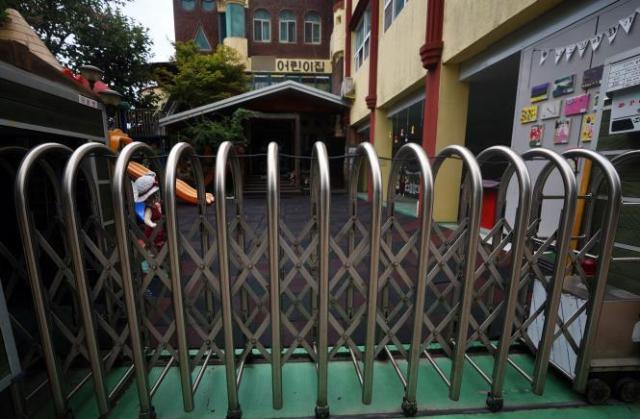
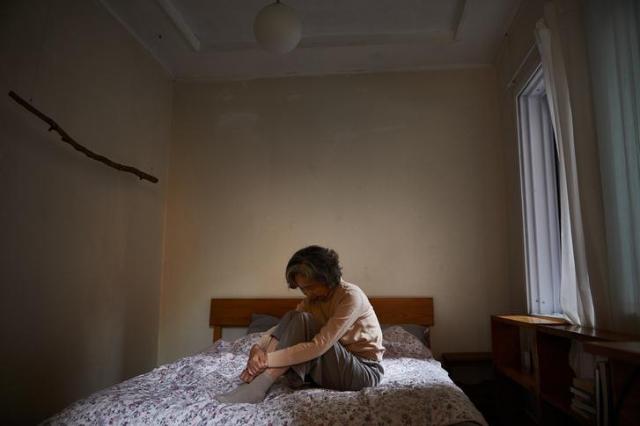

View more comments